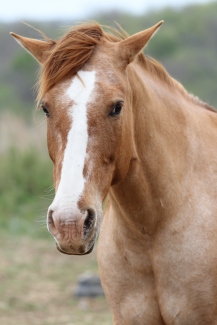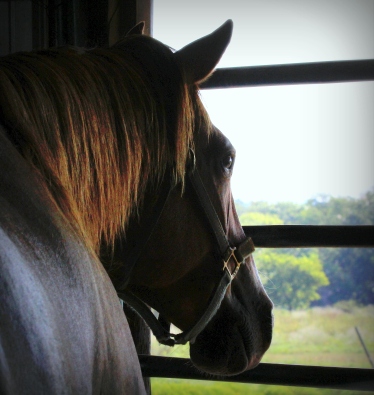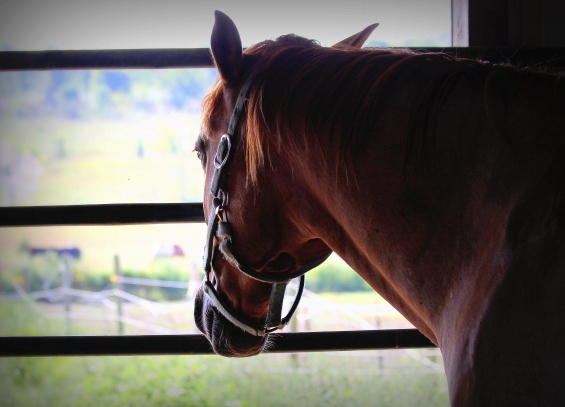My mother’s words will follow me forever, no matter how old I get.
“If you’re too sick to go to school, you’re too sick to go out to play.”
OH the risk of claiming a tummy ache on a school day. Sure, maybe you start feeling way better about an hour after the school bell rang, but it just didn’t matter. You played the sick card, so you were doomed to a day under the covers with a Sprite and some saltines on the bedside table. If you were lucky, there might be some new comic books included.
And after school? When your friends all came racing home to play and you were feeling much, much, much better? Too bad, so sad. You played the sick card.
Too sick for school, too sick to ride your bike. Too sick to play hide and seek. Too sick to go see the neighbor’s new puppy.
Not fair.
Now, as a living-by-my-own-rules adult, my mom’s rule still has a magical effect. If I don’t feel up to going to work, I’m not allowed to go out of the house that day or that evening. No one is here telling me that, it’s just the dang rule.
But today, my day as the enforcer has finally arrived. I get to impose Mom’s No Go/No Play rule on my horse.
It all started with one simple sentence.
 “You should go out to check on your horse,” Jim said as he came in the house from feeding the barn menagerie. “He didn’t want his dinner.”
“You should go out to check on your horse,” Jim said as he came in the house from feeding the barn menagerie. “He didn’t want his dinner.”
Uh oh. Those are the words that make a horse owner’s pulse step it up a notch.
If a human isn’t hungry and skips a meal, it’s no big deal. If your dog or cat seems a little off and skips one meal, it’s not generally a race to the emergency vet. But when a big, stout, never-miss-a-meal horse turns his nose up at a ration of yummy sweet feed? Well, it can be an early indication of colic.
My horse savvy friends just cringed.
For my non-horse-savvy friends, colic in horses is a fairly common disorder of the digestive system. The true definition of the word simply means “abdominal pain,” however when it comes to horses, the term refers to a condition of severe abdominal discomfort characterized by pawing, rolling, and sometimes the inability to defecate. More to the point, suspicion of colic means you call your vet and you call fast.
There are different types of colic, and the severity of the illness varies greatly. Sometimes a horse may have a mild bout of abdominal pain that resolves with a single dose of medication. In other cases, if a horse suffers a displacement, or, in highly technical terms, a twisted gut, emergency surgery is necessary. When blood supply to the intestines is cut off…let’s just say it’s a bad situation. In worst case scenario cases, euthanasia is the only humane answer.
I have seen worst case scenario with one of the best horses I’ve ever loved. I know not to mess around when I see even the most mild symptoms of a potential colic.
When Jim told me that my big boy, Dublin, didn’t want his dinner, I immediately raced out to the barn to check on him. Let’s start a symptom list: 1: Lack of appetite.
When I walked into the barn, Dub was standing quietly watching the other horses finish their grain. Symptom 2: Fat pushy horse quietly watching underling horses eating.
I walked straight to my boy and haltered him. Symptom 3: Dub let me walk right up and halter him without a 15 minute game of keep-away. Yeah, he’s generally naughty that way.
I gave him a quick once-over. He wasn’t sweating, he wasn’t nosing his belly, he wasn’t trying to lie down or roll – all additional sure signs of colic – but his breathing was a bit shallow and rapid, his nostrils flaring with each breath. He was stressed and uncomfortable. Symptom 4: Breathing that would have made an excellent obscene phone call.
Colic symptoms can truly be that innocuous. Someone who is not a horse owner would likely not even notice from these early signs that big trouble could be on the horizon. But with years and years of experience with horses, these quiet symptoms immediately warranted an after-hours on a holiday weekend call to our large animal veterinarian.
Because that’s just about the only time my large animals manage to have an emergency. Talk to me about the once-upon-a-time Christmas Day emergency call. Sorry, Doc.
By about 9:15 in the evening, the veterinarian arrived. Dr. Meg Hollabaugh stepped out of her truck and, without much of a hello or how ya doing, got straight to work. Colic is serious business.
After an initial exam, checking his heart rate, listening to his lungs, listening for stomach sounds, it was time to give the boy a little sedation for “the” exam. The long glove exam. The “just relax” exam.
If you ever thought for a nanosecond that you might want to be a large animal veterinarian, one glimpse of your vet, arm buried to the shoulder in your horse’s backside, just might change your mind. Yup. Don’t try this at home. Leave this one to the pros.
But it’s an important part of the exam because the veterinarian has to check for an obstruction and needs to obtain a REALLY fresh stool sample. Really fresh.
Long exam story cut short, Dr. Hollabaugh determined that Dub had an impaction in his small intestine. Well no…she did not determine that from her arm-length exam. Horses have about 50 to 70 feet of intestines (Really? Really!). She arrived at the diagnosis through what we shall call veterinary detective work based on the appearance and texture of his manure sample, his gut sounds, and his other symptoms.
Dr. Hollabaugh treated Dub by passing a long tube through his nose and into his stomach. This is done for several reasons…in Dub’s case to check for reflux and hopefully help break up an impaction; oftentimes it is to pass oil into the horses digestive tract to help things “move along.” You can’t exactly ask a horse to drink a quart of oil like a good boy.
Finally, with pain meds and sedation on board (for the horse…for me? Nada. Not even anything to help with the pain of the after-hour-holiday-weekend bill), it just came down to a game of watch and wait.
Watch for more signs of discomfort. Wait for my horse to shit. Yes, in this case, poop, and lots of it, would be our friend. Each pile of manure would be a positive sign that Dub’s intestines had dislodged and were on the move.
While the wonderful Dr. Hollabaugh headed out to salvage what was left of her Friday evening (Did you draw the short straw for holiday weekend on-call duty, Doc?), Jim and I secured an unhappy Dub in the barn for a night of observation.
Dub was not pleased. Horses do not like to be separated from their herd mates. And Dub is the leader of his pack (Jim might say bully), so he was raising a bit of a ruckus calling out from his stall into the dark pasture. Honestly, his displeasure was actually a good sign in my mind. He felt good enough to be annoyed. Maybe we were going to skate by with just a mild case.
Finally the other horses answered Dub’s insistent calls and wandered up to hang out around the barn. Everyone calmed down and Jim and I made a plan that we would take turns visiting Dub through the night. I took the first, late night visits, Jim took the wee-hours-of-the-morning visits. Jim is WAY better at the past 1:00 a.m., pre-dawn stuff. (He might be a vampire.)
 By morning, Dub’s breathing was normal. He was relaxed, no signs of stress. He had pooped a couple of times, though not as many times as we would have liked. But he was interested in the small handful of grain I offered him. Interested to the point that my fingers were a bit in danger.
By morning, Dub’s breathing was normal. He was relaxed, no signs of stress. He had pooped a couple of times, though not as many times as we would have liked. But he was interested in the small handful of grain I offered him. Interested to the point that my fingers were a bit in danger.
Good sign, but not out of the woods yet. Jim and I would keep close watch on Dub for the rest of the day, offering small amounts of feed or hay every two hours. If all continued to go well (and that included seeing many more piles o’ pooh), I would let him out of the barn Saturday night when the temperatures cooled. All of these precautions would be enforced despite Dub’s sincere and emphatic protests.
Oh, to be stuck inside on a glorious, sunny day. In Dub’s opinion, he was fine, fit, and ready to head back out to assume his role as boss horse of Tails You Win Farm. But by my rule, if he was too sick to eat dinner the night before, he was too sick to go out to play the following day. And I needed to be sure he was ok. I needed to be 100% worth-pissing-the-horse-off sure.
Oh Mom. You taught me well. I may not have human children to introduce to your old rules, but I have one large pouting horse learning your timeless lesson right now. And maybe I’m learning a new lesson too. All these years I thought you enforced that rule just to thwart and/or punish any feigned illnesses. I’m sure that was part of it. But I also think you needed to be really, really sure your baby was truly ok.
Thanks for that, Mom. Right now, to me, I have the most beautifully sullen, but healthy horse in the world.
